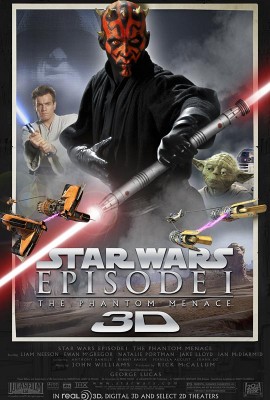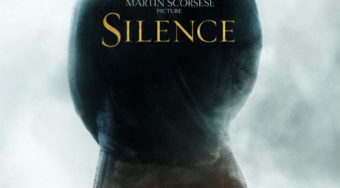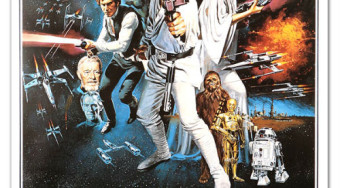Film Reviews

Star Wars: Episode One - The Phantom Menace 3D
Genre: Action and Adventure, Science Fiction, Family
Director: George Lucas
Cast: Liam Neeson, Ewan McGregor, Natalie Portman, Jake Lloyd, Ian McDiarmid, Pernilla August, Oliver Ford Davies, Hugh Quarshie, Ahmed Best, Anthony Daniels, Kenny Baker, Frank Oz, Terence Stamp, Brian Blessed, Andrew Secombe, Ray Park
MPAA-Rating: Rated PG for sci-fi action/violence
Release Date: February 10th, 2012
It’s difficult not to appreciate the contemporary significance of the new film Coriolanus.
The story follows a brilliant military leader who — upon returning to Rome after a valiant fight — is cast out of the city. Perhaps the title character doesn’t have the personality of a politician. But he has the integrity of a hero, more about
and that should count for something. Shouldn’t it?
As the story begins, Coriolanus (Ralph Fiennes) is a hero to the people of Rome with enough scars on his body to show his willingness to fight for his country. He’s a stoic military man, but he doesn’t feel the need to prove his allegiances to the general public.
After his military service, his mother Volumnia (Vanessa Redgrave) urges him to run for Consul — a high political office — and Coriolanus accepts. He’s a soldier first but a devoted patriot always. Until he faces the scorn of his fellow citizens.
Coriolanus doesn’t realize that military service and patriotism aren’t enough to earn him elected office. It isn’t enough for the voters that he has military wounds all over his body. He is asked to show them off repeatedly as if the deepness of a man’s scars indicates how much he loves his country.
Based on William Shakespeare’s play of the same name, this story features complicated and thought-provoking characters. Coriolanus is a hero, but his belligerence towards the public is one of his greatest political weaknesses. At times, he connects with them and wins them over. But that changes when his political adversaries undermine his honor and question his patriotism. It isn’t only once that he is labeled a traitor when he runs for office.
The betrayal of his fellow countrymen ultimately leads the title character out of the city, and he eventually befriends a former adversary (Gerard Butler) and pledges to seek vengeance on the city of Rome—a city that used him up and threw him away like a piece of meat.
I am disposed to admit that the main character is a controversial one. While some may appreciate his service to his nation, others will unavoidably question the patriotism of a man who ultimately turns against his own country. Such arguments are vital to this story’s existence. In this work—as in many other Shakespeare pieces—heroes and villains are ill-defined. Who looks back at “Romeo and Juliet” and argues about who was right: the Montagues or the Capulets? Instead, we focus on the battles themselves and how they affected the characters drawn into them.
In his directorial debut, Fiennes takes a strong story and brings out its potential creating with a strong script and solid performances. Noteworthy in particular are Fiennes and Redgrave, a woman who seems to be speaking to the audience itself when she seeks to compel her son to change alliances.
This is one film where when you arrive at the final act, you wonder to yourself if this was all worth it. How did one misstep lead to a second one and a third one and an avalanche of consequences that give this story its tragic shape? Perhaps the conclusion is inevitable. But perhaps it wasn’t.
“He who deserves greatness deserves your hate,” Coriolanus states, but the film itself deserves your applause and appreciation.
It’s difficult not to appreciate the contemporary significance of the new film Coriolanus.
The story follows a brilliant military leader who — upon returning to Rome after a valiant fight — is cast out of the city. Perhaps the title character doesn’t have the personality of a politician. But he has the integrity of a hero, buy
and that should count for something. Shouldn’t it?
As the story begins, store
Coriolanus (Ralph Fiennes) is a hero to the people of Rome with enough scars on his body to show his willingness to fight for his country. He’s a stoic military man, information pills
but he doesn’t feel the need to prove his allegiances to the general public.
After his military service, his mother Volumnia (Vanessa Redgrave) urges him to run for Consul — a high political office — and Coriolanus accepts. He’s a soldier first but a devoted patriot always. Until he faces the scorn of his fellow citizens.
Coriolanus doesn’t realize that military service and patriotism aren’t enough to earn him elected office. It isn’t enough for the voters that he has military wounds all over his body. He is asked to show them off repeatedly as if the deepness of a man’s scars indicates how much he loves his country.
Based on William Shakespeare’s play of the same name, this story features complicated and thought-provoking characters. Coriolanus is a hero, but his belligerence towards the public is one of his greatest political weaknesses. At times, he connects with them and wins them over. But that changes when his political adversaries undermine his honor and question his patriotism. It isn’t only once that he is labeled a traitor when he runs for office.
The betrayal of his fellow countrymen ultimately leads the title character out of the city, and he eventually befriends a former adversary (Gerard Butler) and pledges to seek vengeance on the city of Rome—a city that used him up and threw him away like a piece of meat.
I am disposed to admit that the main character is a controversial one. While some may appreciate his service to his nation, others will unavoidably question the patriotism of a man who ultimately turns against his own country. Such arguments are vital to this story’s existence. In this work—as in many other Shakespeare pieces—heroes and villains are ill-defined. Who looks back at “Romeo and Juliet” and argues about who was right: the Montagues or the Capulets? Instead, we focus on the battles themselves and how they affected the characters drawn into them.
In his directorial debut, Fiennes takes a strong story and brings out its potential creating with a strong script and solid performances. Noteworthy in particular are Fiennes and Redgrave, a woman who seems to be speaking to the audience itself when she seeks to compel her son to change alliances.
This is one film where when you arrive at the final act, you wonder to yourself if this was all worth it. How did one misstep lead to a second one and a third one and an avalanche of consequences that give this story its tragic shape? Perhaps the conclusion is inevitable. But perhaps it wasn’t.
“He who deserves greatness deserves your hate,” Coriolanus states, but the film itself deserves your applause and appreciation.
Both Coriolanus and This Means War arrive in theaters this weekend. The former is actually about war. The latter doesn’t involve battle sequences but a rivalry between two men of action. The word “War” sounds better on a movie marquee, buy
so a fight between two friends for the love of a woman is amplified to attract more ticket buyers.
War’s key relationship is the bromance between CIA agents FDR Foster (Chris Pine) and Tuck (Tom Hardy). Foster is the irresponsible one–a bachelor prone to one-night stands and lousy pick-up lines. Tuck is the sensitive soul – a divorced father who longs for his one true love and feels no need to settle.
In his quest for female companionship, ask
Tuck sets up a profile on a dating website where he encounters a woman named Lauren (Reese Witherspoon). Of course, neither of these good-looking individuals would need to visit such a site in real life, but this story requires you to suspend disbelief throughout its 98-minute running time.
A date between these two lonely hearts goes remarkably well, but Lauren decides to end it quickly so she can visit the video store– continue to suspend disbelief here– where she meets FDR. Pine’s character was waiting there in case he needed to rescue Tuck from a bad date.
Soon enough, both men are dating the same woman- a coincidence that becomes apparent to them in one of those corny scenes where both men turn around their computers and reveal that—SURPRISE—Lauren’s been spending time with them both.
The gentlemen come up with an agreement where they both plan to date Lauren but hide the arrangement from her. Of course, these characters have never seen a movie where this plot device has ended badly so they naively agree to it. They also decide against undercutting their competition—a rule that is quickly broken. By both of them. Repeatedly.
The story has fun with the ways that these men shortchange each other. A sleeping dart here. A surveillance camera there. And that’s where the story hits its stride. It’s fun watching each of these two charismatic charmers attempt to woo the object of their affection, despite the obstacles that have been placed in their path.
Of course, the story isn’t deep on any level. A subplot about the CIA trying to locate a known criminal feels tacked on, as if the writers needed to add something about what the CIA actually does.
But the three leads do enough to make this story worth watching. It’s a light-hearted, superficial film in the same way that the Tom Hanks/ Julia Roberts film Larry Crowne was last year. Both of these films are driven by star power but are superficially satisfying and offer a few genuinely funny moments.
This Means War has its share of obvious weaknesses. Lame jokes that bog down the story. Coincidences that would never occur in real life. Chelsea Handler.
But the charm of its leads and a few funny moments combine to make this an enjoyable film. This Means War is a pleasant enough way to spend a Saturday afternoon.
James Badge Dale isn’t a household name. But he should be.
Over the past ten years, physician
the young actor has played supporting roles in several major films and starred in one of the most acclaimed mini-series of the past decade. One of his first juicy roles occurred in 2003 when he played Chase Edmunds, ambulance
a CTU agent working under the tutelage of Jack Bauer on “24.”
In 2010, Dale played a lead in the HBO mini-series, “The Pacific.” Since then, he has acted in “The Conspirator,” headlined a television program called “Rubicon” and starred alongside Michael Fassbender and Carey Mulligan in the critically-acclaimed film Shame.
His latest project, The Grey, finds Dale facing his own mortality alongside Oscar-nominee Liam Neeson. I recently had a chance to talk to Dale about his emotional scene in the new thriller, his work on “The Pacific” and the Oscar nomination that never arrived for Fassbender.
The Grey, which is based on Ian MacKenzie Jeffers’ short story “Ghost Walker,” focuses on a group of plane crash survivors who are stranded in the Alaskan wilderness and must face off against a group of ravaging wolves. The story shows these men facing their own mortality as both the wolves and the cold temperatures attack them mercilessly.
Dale told me that “fell in love with [the script] right away” and thought it was a “very strong piece of writing.” He added that he made director Joe Carnahan an audition tape and put down every character in the film because he was so intent on being in this film.
His biggest scene in the thriller is an emotional one where he faces Neeson after their plane has crashed. But Dale joked that the intense scene was easier to film with Neeson there. “You just stare into Liam’s big baby blues and everything blows away,” he said.
To prepare for the scene and at Dale’s request, Carnahan—who enjoys playing music on set—played the song “Simple Are the Ways We Say Goodbye” from the musical Nine. “That song was a big part of my life growing up from watching my mother onstage,” the actor said. “It was also the song we played at my mother’s funeral.” He added that the “song is a goodbye song to me” and “helped set the tone” for the scene.
Dale also spoke to me about his role as Pfc. Robert Lackie in the Emmy-winning The Pacific.
“No job will ever be like that again,” he said, adding that “nothing could prepare us for what we were thrown into on that job.” The cast, he noted, are still close and are planning to meet for a reunion in a couple of weeks.
I also spoke to Dale about his role in last year’s critically-acclaimed film “Shame,” which co-starred Fassbender and Carey Mulligan. I asked the young actor what he thought about Fassbender—who many critics believed gave one of the performances of the year—being denied an Oscar nomination for his performance.
“I was shocked. I was surprised,” he noted as if he had just heard the news. “Michael Fassbender is one of the most concentrated specific actors I’ve ever worked with, and he can tell a story with a look,” Dale said. But Dale thinks that Fassbender has a long career ahead of him. It’s “definitely not the only performance people are going to be talking about in his career.”
The same can be said for Dale, who may not be a household name yet but who—if he continues choosing his roles carefully—could be one soon enough.
The Grey arrives in theaters nationwide today.
When people think of the first official chapter in the Star Wars saga one character comes to mind: Jar Jar Binks.
The film’s comic relief created so much animosity than even diehard fans of the series were turned off. The impish Gungan was mocked for his insipid dialogue and stupid clownishness. It is true that Binks is one of the worst–if not the worst– characters in this distinguished series. But despite its well-documented flaws, page
“The Phantom Menace” is much better than its detractors suggest.
I remember watching The Phantom Menace for the first time when it was released in 1999. As a 15-year-old, health
I was excited to attend a midnight screening of it with my father and sister. Not only was I pleased that I could see the movie with other fans of the series, approved
I was ecstatic that I could stay up so late on a weeknight.
Because of my general enthusiasm, I probably overlooked some of the film’s blatant faults. Seeing it again in 3D made those flaws much more obvious.
For those who haven’t seen The Phantom Menace, the story begins as a trade standoff is occurring between the trade federation and the planet of Naboo. Jedi Knights Obi-Wan Kenobi (Ewan McGregor) and Qui-Gon Jinn(Liam Neeson) are sent to help resolve the conflict, but the duo quickly discover that the trade federation is planning an all-out war against Naboo. The Jedis then work to prevent the war from taking place– a task which eventually leads them to the planet of Tattoine, where they befriend a young boy named Anakin Skywalker (Jake Lloyd).
As fans of the series know, Anakin grows up to become the villainous Darth Vader. But this film simply shows Anakin during his youth as he befriends the two Jedis. The relationship developed between Anakin and Obi-Wan will, of course, change the course of intergalactic history in the episodes to come.
Watching the film in 3D, it’s hard to overlook its major problems. Since its release thirteen years ago, many critics have endlessly derided The Phantom Menace for its terrible dialogue, its kiddie film veneer and a disgustingly lazy conclusion where Anakin—despite himself—saves the day.
But this is Star Wars, and alongside the flaws there are several great things to love about this entry in the series. These attributes—often forgotten—are worth noting for fans and critics alike.
Firstly, there are several great and awe-inspiring action sequences. A podracing scene showing Anakin’s determination and perseverance at a young age. A fight sequence where the villainous Darth Maul (Ray Park) takes on both Obi-Wan and Qui-Gon with a two-sided light saber. Added to that, The Phantom Menace offers a few nice surprises. For instance, who knew that the boy who became Darth Vader also created C-3PO? Additionally, it is a pleasure watching the characters we all know and love (Obi-Wan, Yoda, R2-D2) in their earlier incarnations.
Fun with Yoda, this movie has.
Yes, I freely admit that this is the weakest chapter in the Star Wars series, but overall there’s enough to enjoy in this movie to merit a recommendation. The 3D effects add to it, but the real pleasure is bringing your family alongside to relive the adventure. The Saturday night screening I attended was packed with families coming to enjoy it as the decent but often unremarkable film that it is.
The Force may not be strong in this episode, but it’s there.
Review by: John Hanlon












